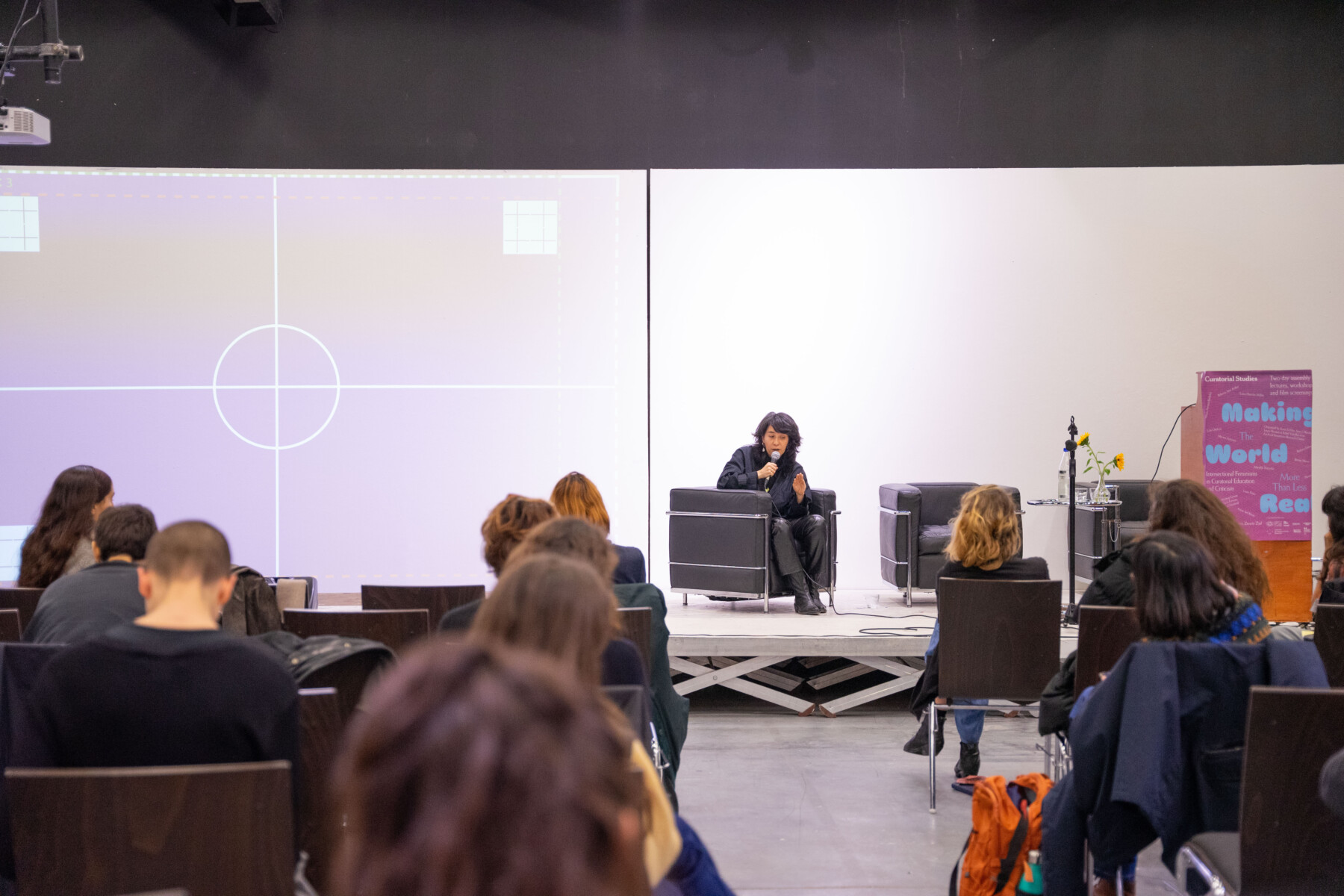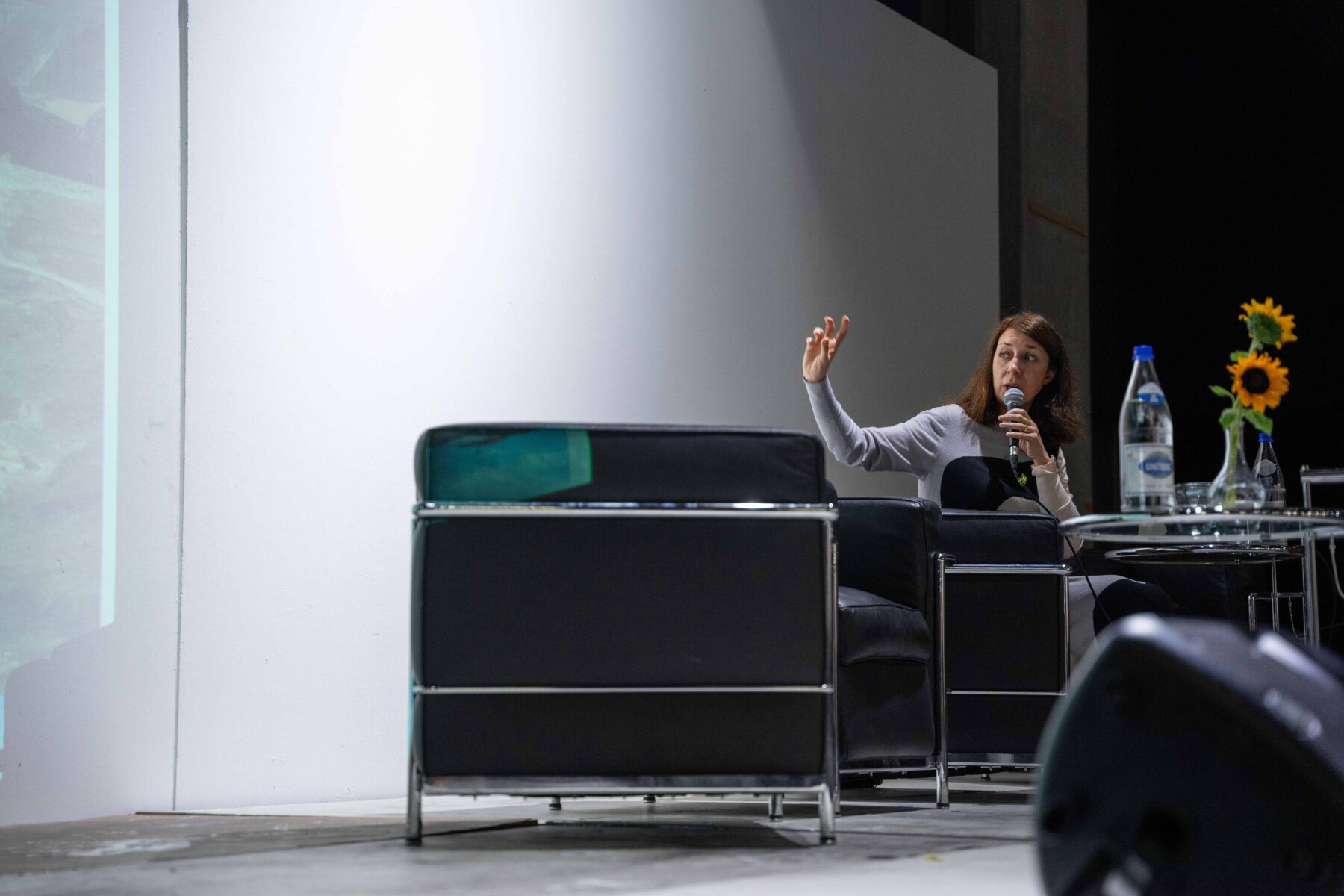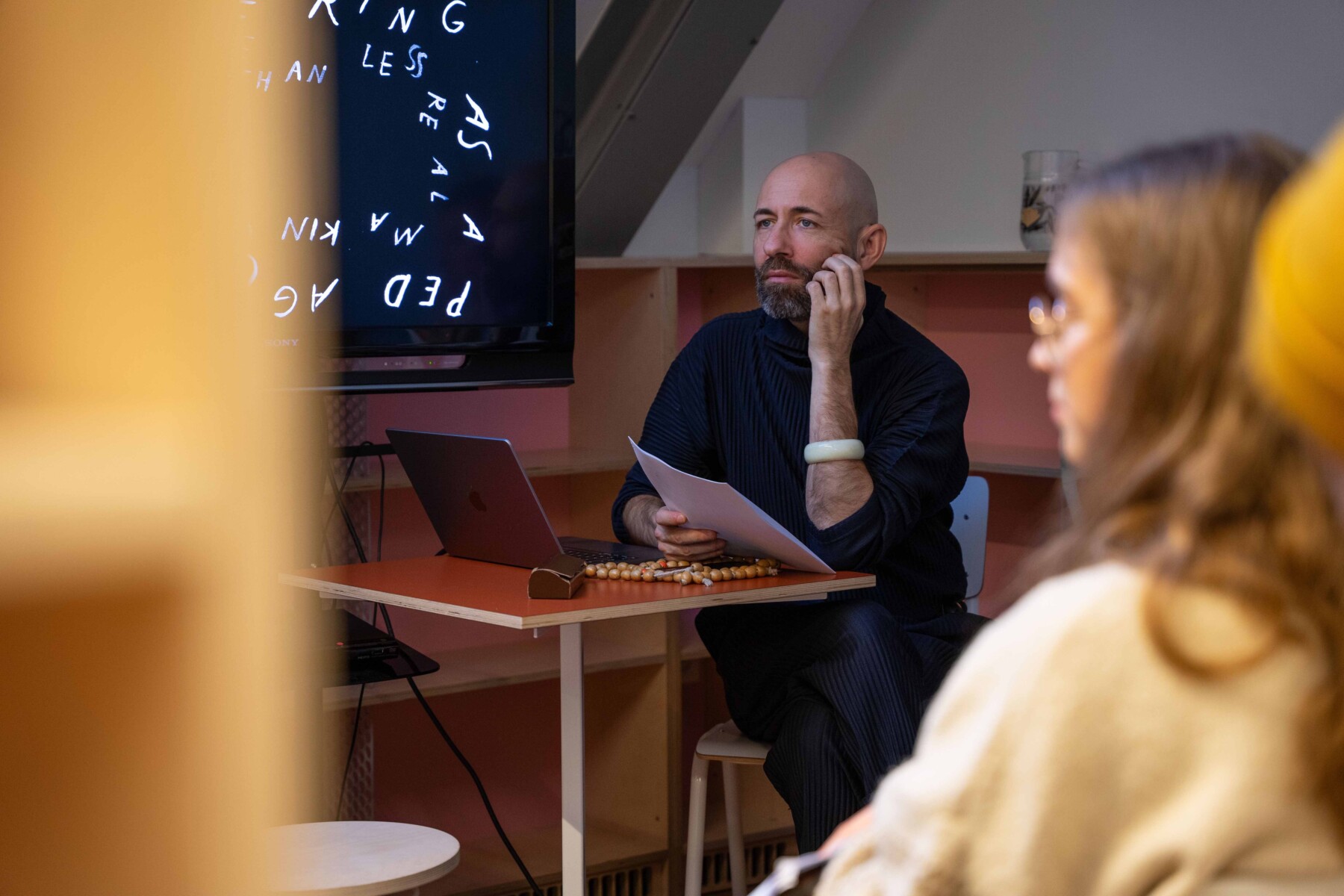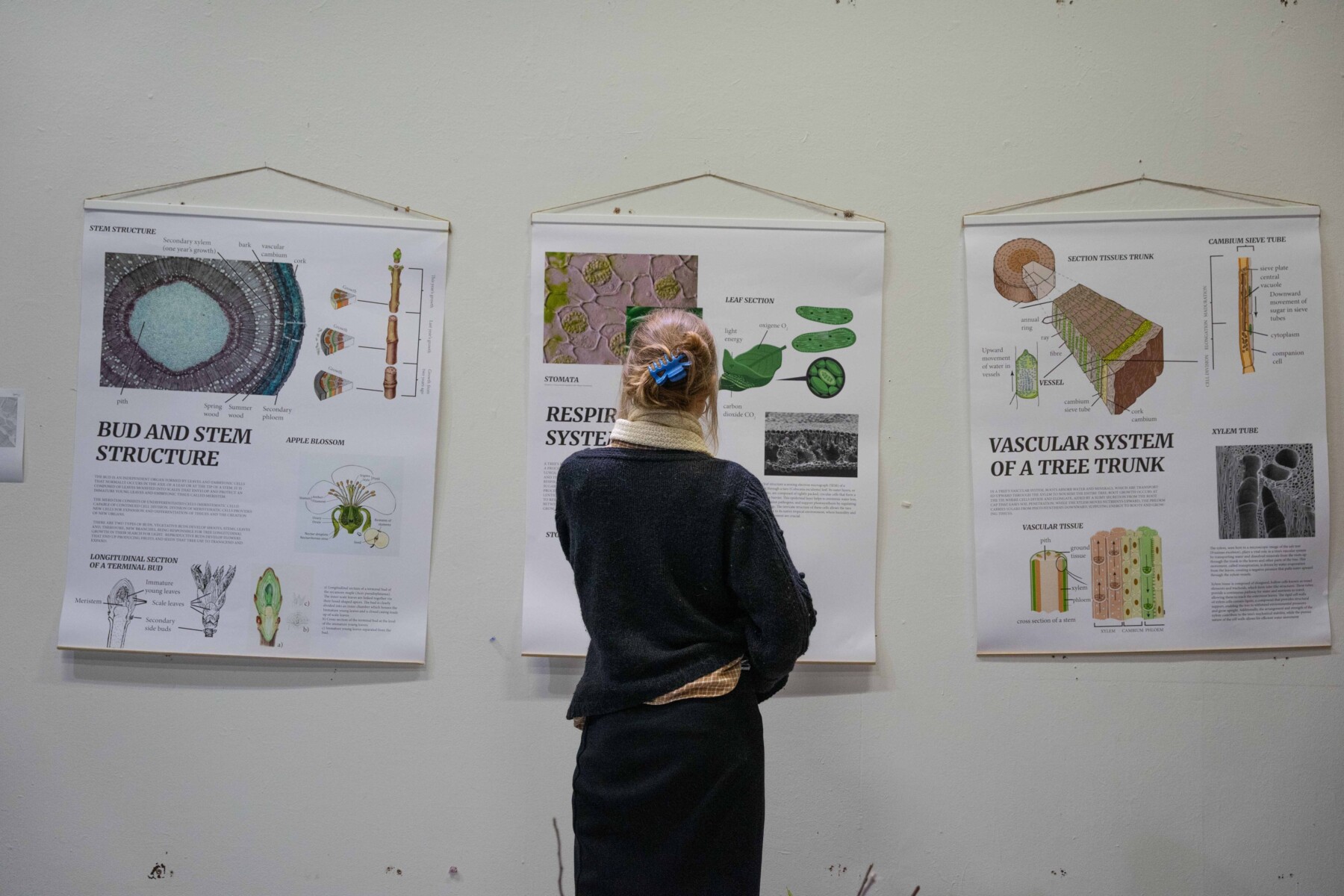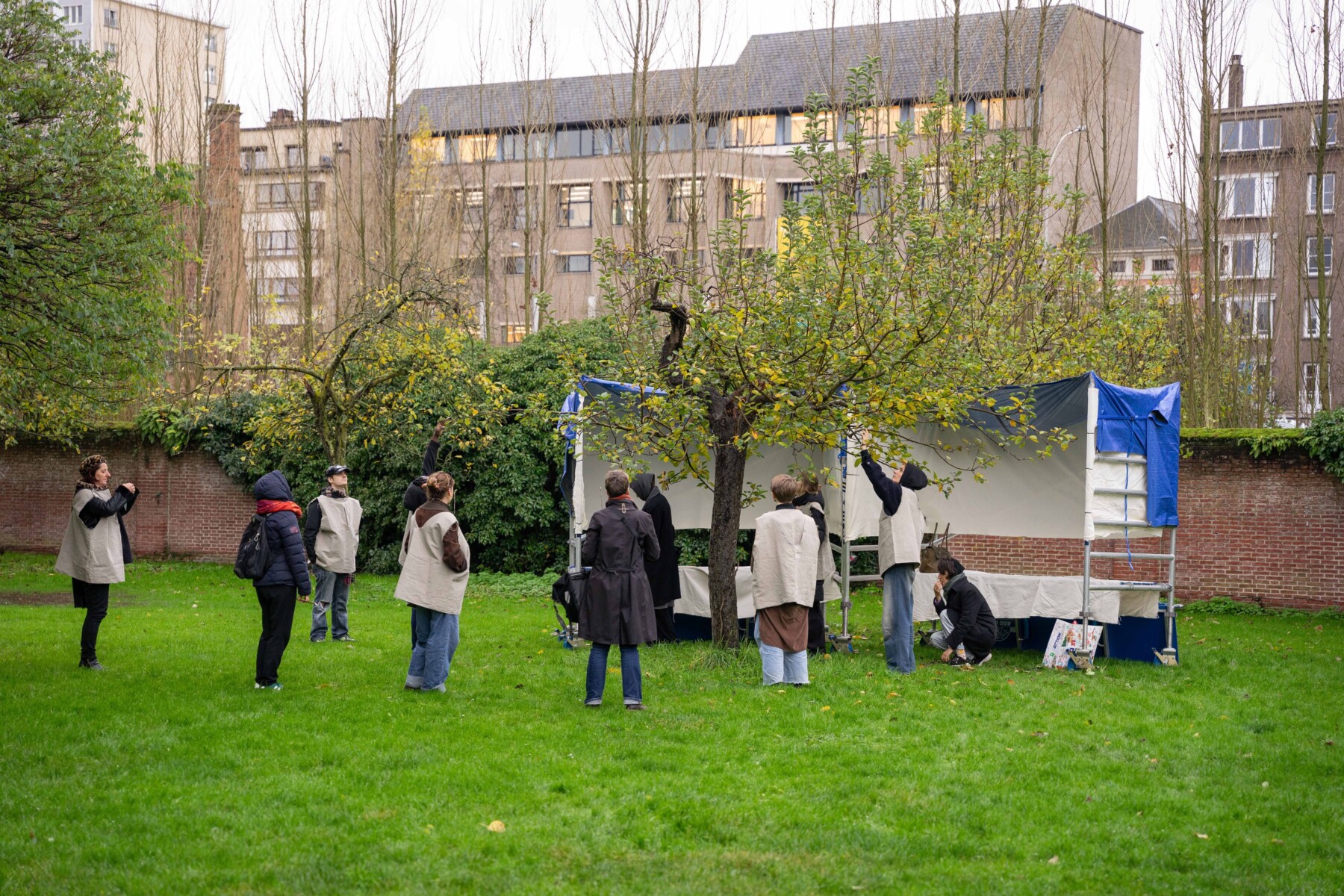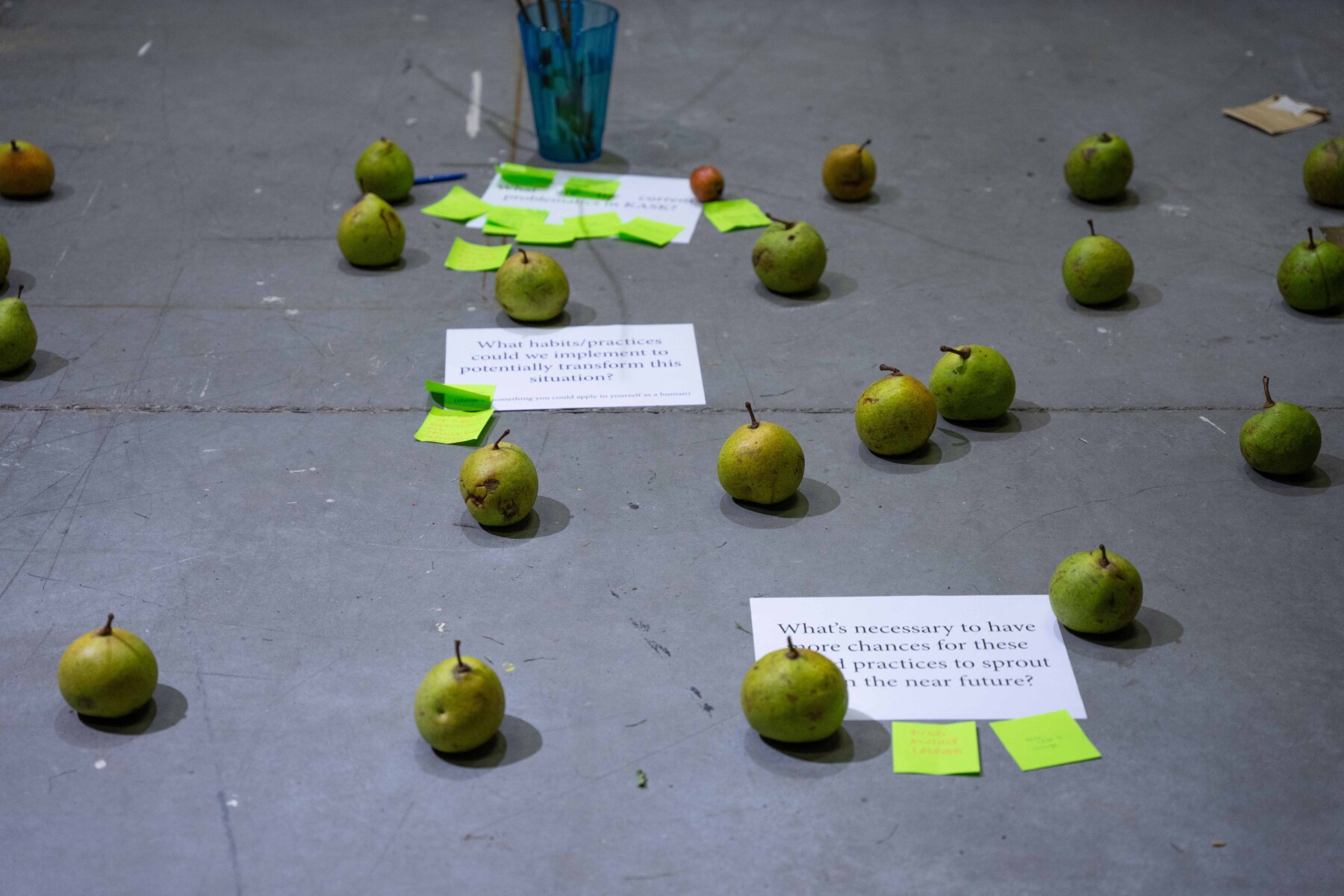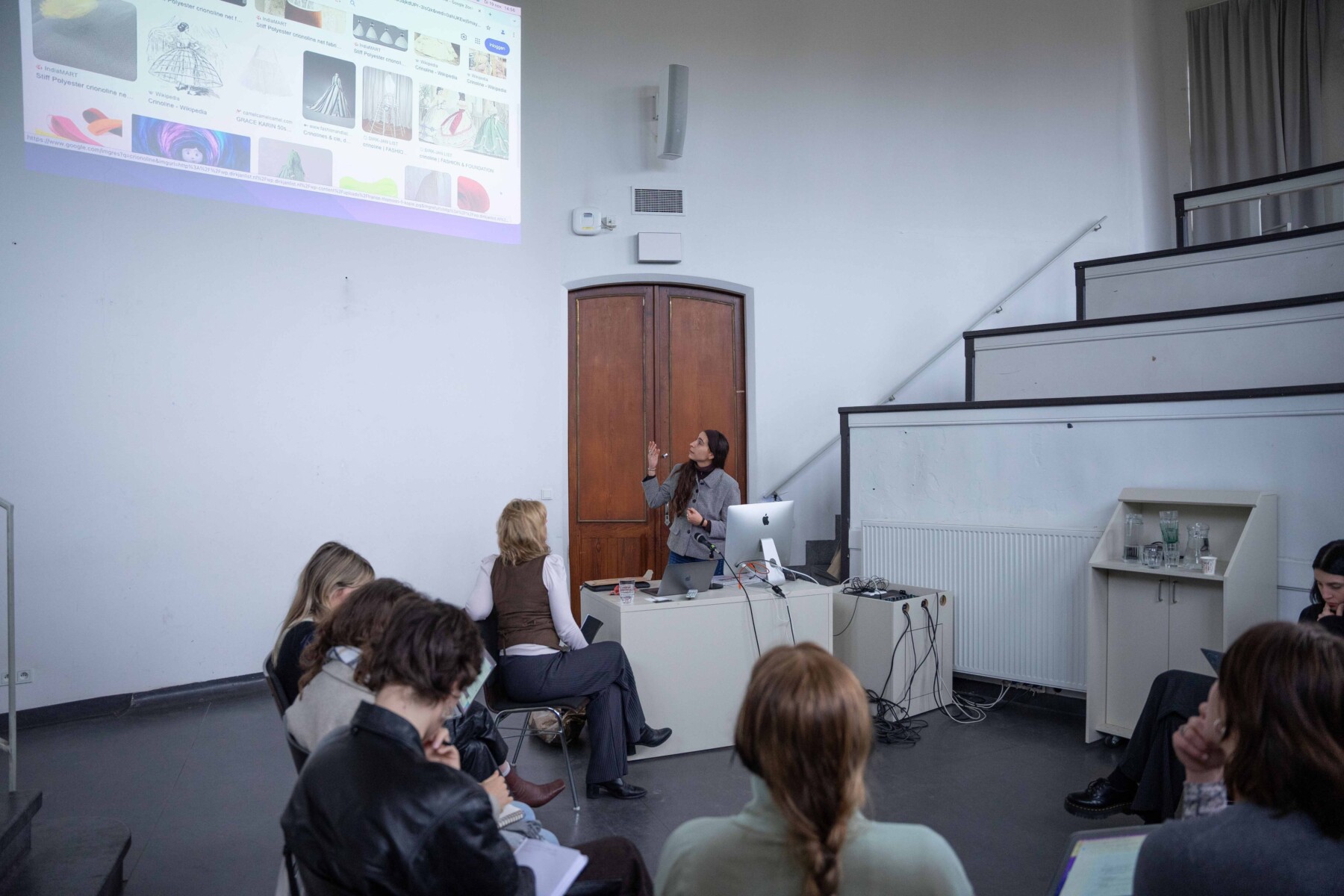Making The World More Than Less Real
Feminist education – the feminist classroom – is and should be a place where there is a sense of struggle, where there is visible acknowledgment of the union of theory and practice, where we work together as teachers and students to overcome the estrangement and alienation that have become so much the norm in the contemporary university. Most importantly, feminist pedagogy should engage students in a learning process that makes the world “more than less real.”
— bell hooks, Teaching Community: A Pedagogy of Hope
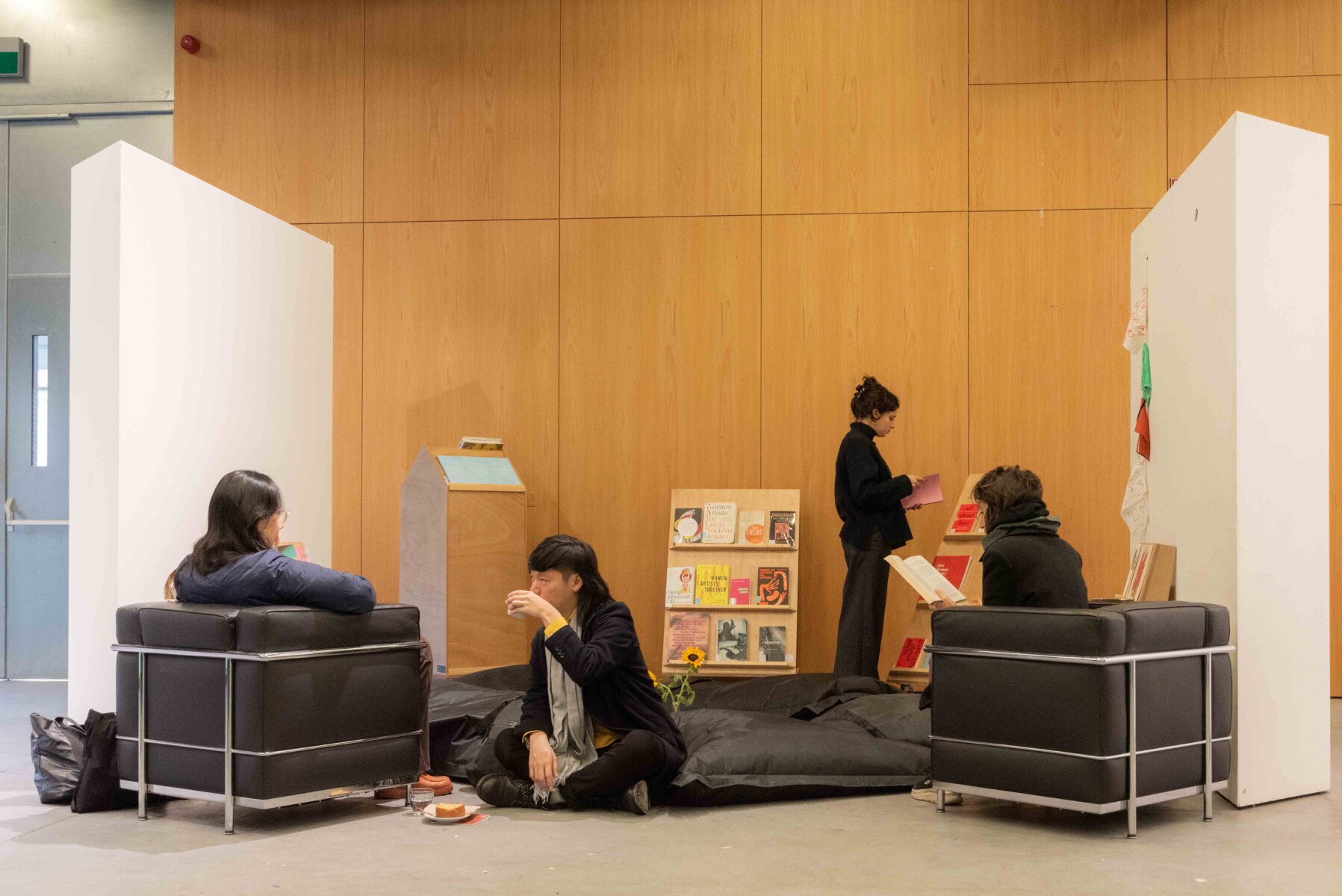
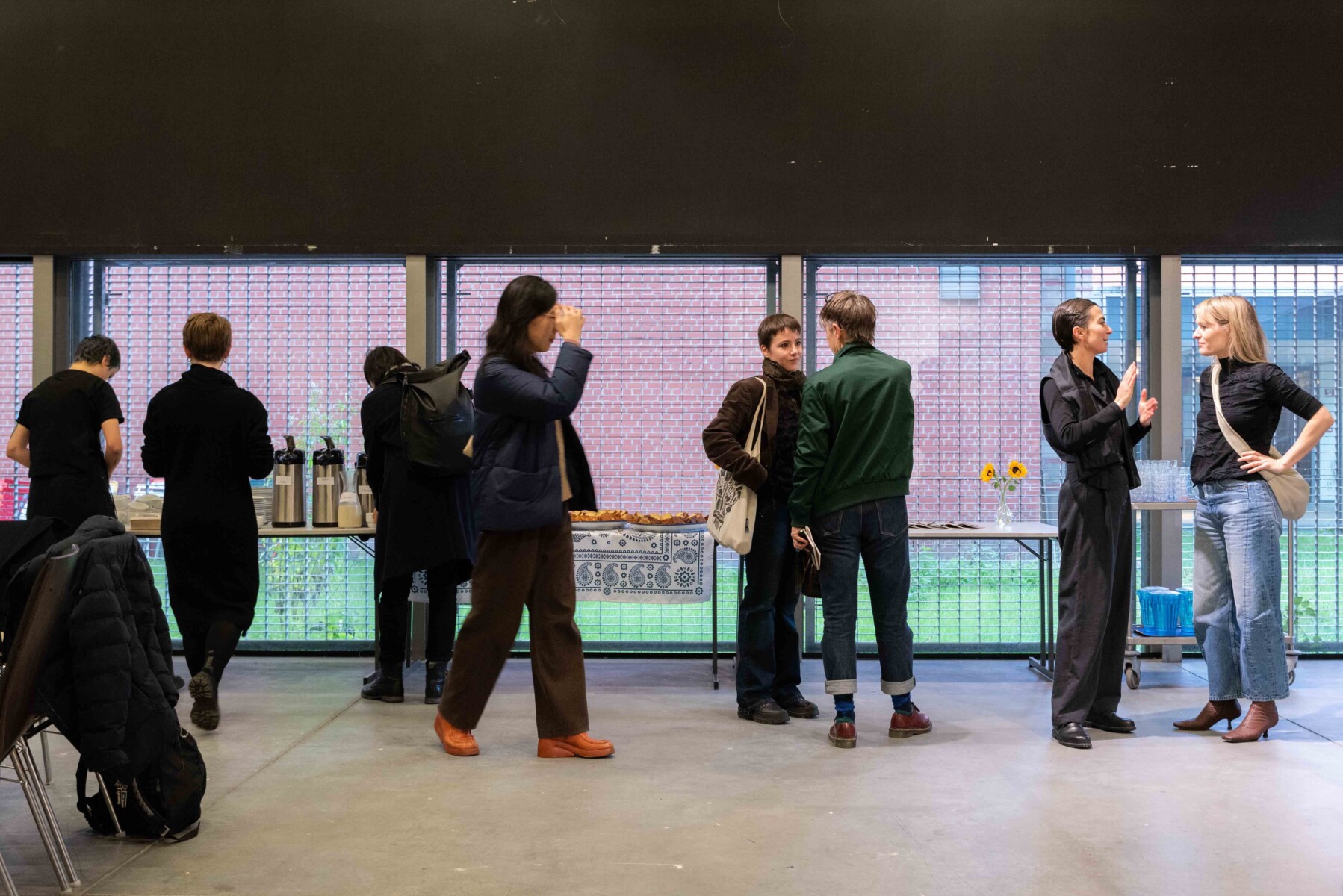
A two-day assembly featuring lectures, workshops, and screenings. Speakers and reseachers: Marwa Arsanios, Rebecca Jane Arthur, Barbara Debeuckelaere, Autocoscienza Writing Group (Alessia Arcuri, Lucia Farinati, Sara Paiola, and Sara Ortolani), Laura Huertas Millán, Annie Jael Kwan, Nuraini Juliastuti, Benny Nemer, Laura Palau, Nataša Petrešin-Bachelez, Matylda Taszycka (AWARE), Lola Olufemi.
The convergence of feminism and curatorial practice has a rich history, initially sparked by a response to the lack of representation of female artists in exhibitions, art collections, and education. Over time, this focus has evolved to embrace various feminist perspectives, including building and deconstructing archives and narratives, creating new interpretative frameworks, and identifying structural inequalities within the art world. In recent years, the curatorial has increasingly explored evolving notions of citizenship, politics, and public participation, particularly in the context of social justice and activism.Today, intersectional feminist thought and action advance ideas of equality, freedom, and care, transcending traditional gender boundaries. While new developments in the arts rapidly influence curatorial practice, they do not always permeate educational methodologies at the same pace. With this in mind, Curatorial Studies asks: How can we weave intersectional feminist perspectives into the fabric of curatorial education, keeping pace with an ever-evolving cultural and political landscape? What if we embraced a curatorial pedagogy that feels—one that centers the body, lived experience, and fluidity—an approach that is interdisciplinary, sensual and affective? How do we hold space to engage with and embody concepts like situatedness, collective action, and responsibility in curatorial practices? And how can we acknowledge the connections between the curatorial and the affective economies of care and love? As bell hooks reminds us, education should stretch beyond theory, addressing real-world complexities—a learning process that makes the world “more than less real.”
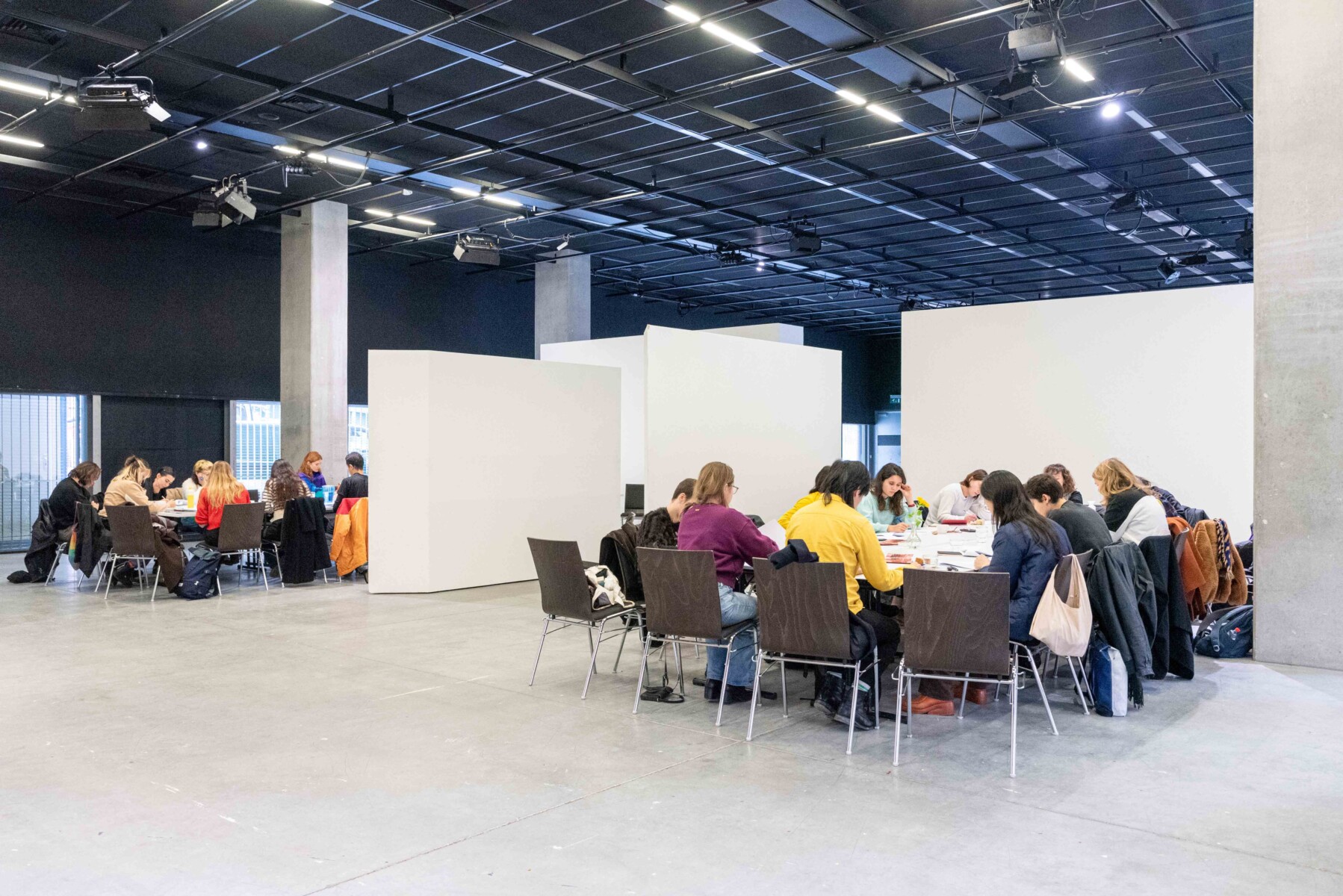
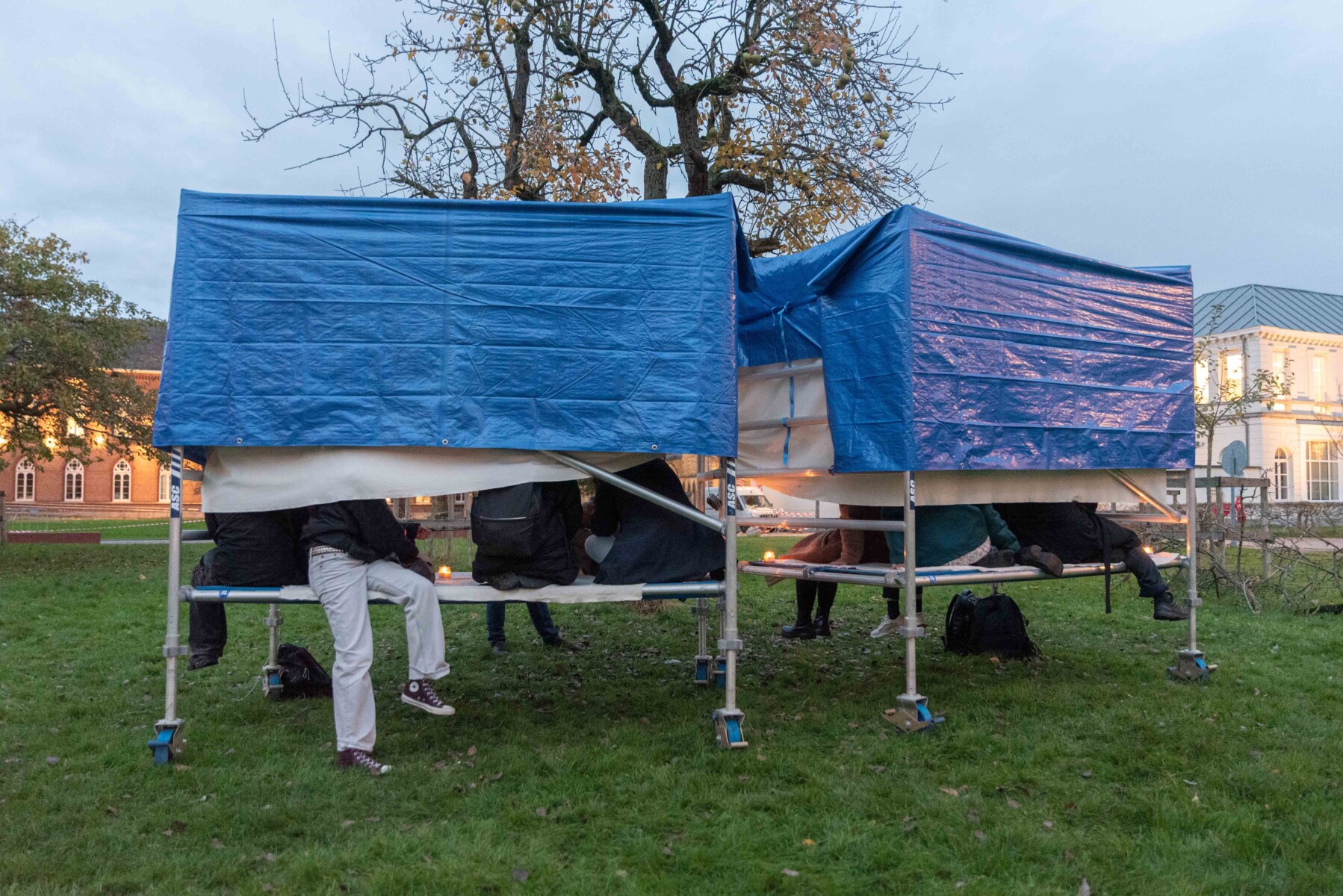
The assembly will feature panel presentations, breakout sessions, and open discussions The four breakout sessions will invite students, curators, artists, researchers, and the wider public into intimate, closed workshops, each aligned with the key themes and presentations of the conference. These sessions will serve as spaces for reflection on feminist strategies, exploring new pedagogical approaches and working together to design a Code of Practice—a set of actionable ideas to reshape structures and curricula in art schools and cultural institutions. Each group will be guided by KASK & Conservatorium researchers—Barbara Debeuckelaere, Benny Nemer, Laura Palau, and Rebecca Jane Arthur—who will share their research, steer discussions, and support the collaborative development of this transformative code.
